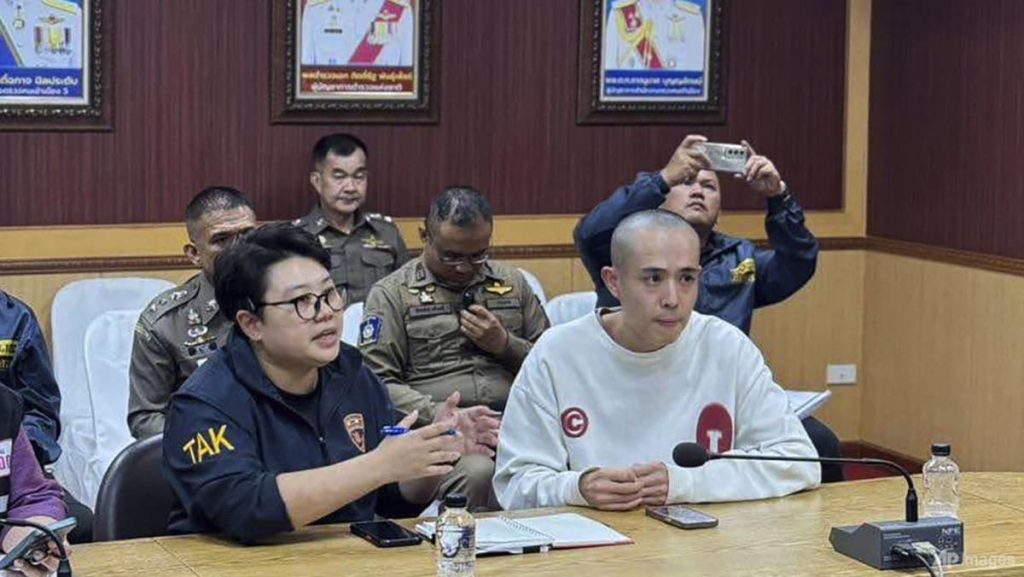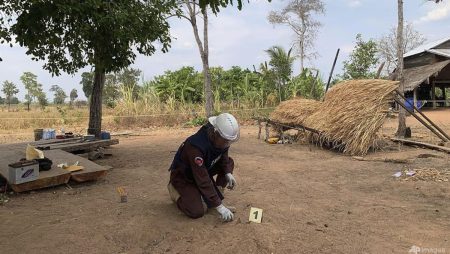This case revolves around a Chinese actor, Wang, who was allegedly kidnapped and held captive in a criminal compound in Myanmar after being lured there under the guise of a film audition. His ordeal gained public attention when his supposed girlfriend posted about his disappearance on Chinese social media, leveraging his existing fame from appearances in popular Chinese TV dramas. Wang’s account, which was corroborated by initial examination of his phone records, paints a disturbing picture of forced labor and captivity within a larger network of similar victims. He testified to being held with approximately 50 other Chinese nationals, all of whom were subjected to head shaving, a possible tactic for dehumanization and control. Fear, according to Wang, prevented any attempt at escape or resistance. This incident throws a harsh spotlight on the burgeoning criminal activities within Myanmar’s border regions.
The lawless border areas of Myanmar, wracked by decades-long conflict between ethnic armed groups and the military junta, have become fertile ground for criminal enterprises. These areas operate with a degree of autonomy, often beyond the effective control of the central government. This lack of governance creates vulnerabilities exploited by criminal syndicates engaging in various illicit activities, including human trafficking, online scams, and forced labor. The porous nature of the borders facilitates the movement of victims and perpetrators, making cross-border cooperation crucial for effective law enforcement. While Chinese authorities have claimed successful crackdowns on these criminal networks through joint operations with neighboring countries, culminating in the repatriation of thousands of individuals, the core leadership within Myanmar seems to remain untouched. This suggests a persistent challenge in dismantling the organizational structure of these syndicates and holding the key figures accountable.
The involvement of Chinese investors in Myanmar’s border regions adds another layer of complexity to the situation. Casino complexes operate within these self-governed development zones, often in collaboration with local militias like the Border Guard Force, which is affiliated with the Karen ethnic minority. This nexus of business interests and armed groups can create an environment conducive to criminal activity, where economic incentives may outweigh the motivation to enforce law and order. The presence of Chinese investment in these areas also raises questions about the potential for complicity, either direct or indirect, in the criminal operations flourishing within these zones. The lack of transparency and oversight in these areas makes it difficult to determine the full extent of Chinese involvement and its potential impact on the criminal landscape.
Wang’s case is not an isolated incident but rather a symptom of the broader issue of lawlessness and exploitation in Myanmar’s border regions. The presence of Chinese criminal syndicates operating with relative impunity highlights the challenges faced by both the Myanmar government and the international community in addressing these issues. The porous borders and the involvement of local armed groups further complicate efforts to enforce law and order. While joint operations between China and neighboring countries have resulted in the repatriation of some victims, the lack of arrests of key figures within Myanmar suggests that the root causes of the problem remain unaddressed.
The Thai government, recognizing the potential damage to its reputation as a safe tourist destination, has expressed its commitment to mitigating the impact of this case. Prime Minister Paetongtarn Shinawatra’s public statement underscores the seriousness with which the Thai authorities are taking the situation. However, the complexity of the issue, involving cross-border criminal networks and the volatile political landscape of Myanmar, presents significant challenges to effective action. The incident highlights the need for stronger regional cooperation and more robust law enforcement efforts to combat the growing criminal enterprises in the region.
Ultimately, addressing the root causes of this problem will require a multifaceted approach involving increased cooperation between regional governments, stronger law enforcement capacity, and efforts to address the underlying socio-economic factors that contribute to the vulnerability of individuals to exploitation. Disrupting the financial flows that support these criminal networks is also essential, along with holding accountable not just the low-level operatives but also the leadership figures who orchestrate these operations. The case of Wang serves as a stark reminder of the human cost of this lawlessness and the urgent need for effective solutions.










